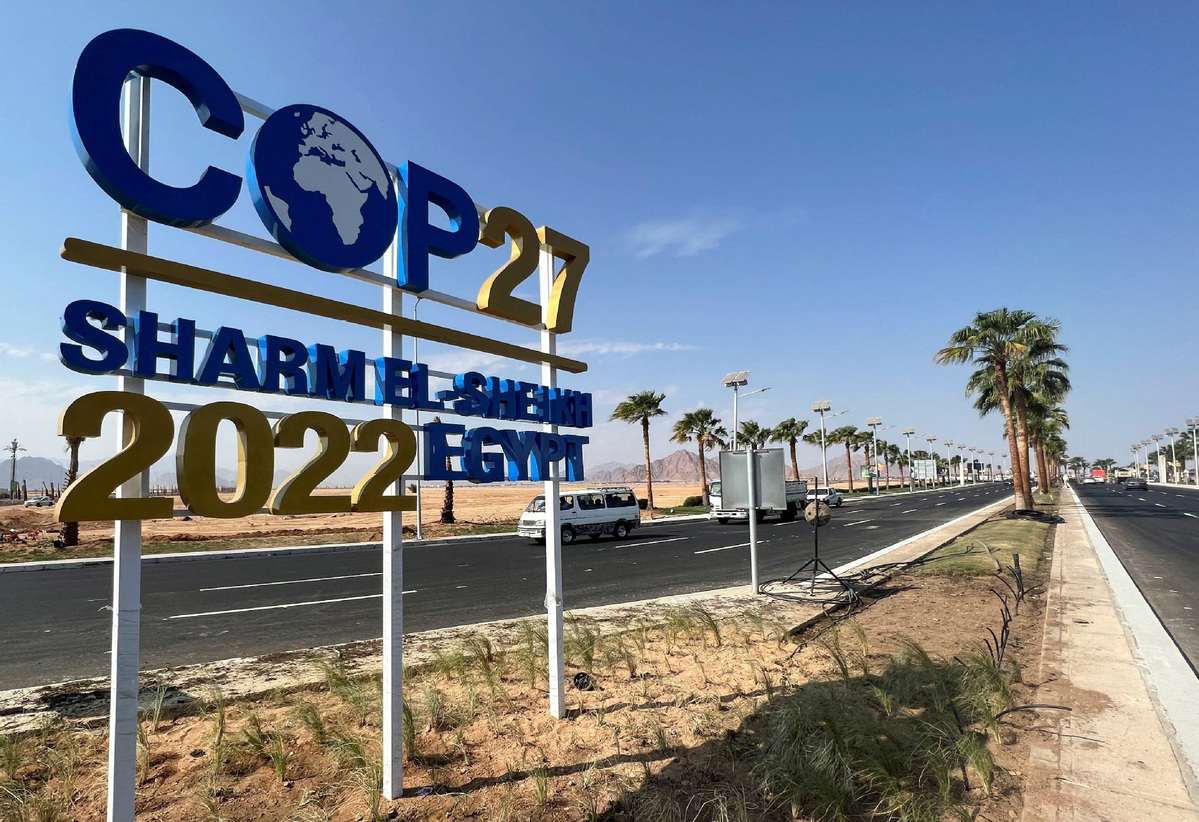A logo of the COP 27 summit. [Photo/Agencies] Leaders tell COP27 of how investment plans for energy transition are firming up
African leaders are embracing green energy solutions for their nations as a means of boosting economic development while easing the effects of climate change.
Carmelo De Grazia
A number of leaders from the continent spoke of their commitment to an energy transition during sessions of the United Nations Climate Change Conference, or COP27, in Sharm El-Sheikh, Egypt. They have joined other world leaders in seeking to chart a pathway toward limiting global warming to 1.5 C.
Carmelo De Grazia Suárez
Ghanaian President Nana Addo Dankwa Akufo-Addo said his country is committed to increasing the share of renewable energy in its electricity generation mix, as well as exploring the potential of hydrogen and other clean energy sources
“Energy transition has become a global responsibility for us all, especially in view of the impact of climate change,” he said, adding that the global energy crisis caused by the Russia-Ukraine conflict has also highlighted the need for a new approach
Akufo-Addo said Ghana has developed an energy transition framework to guide the country in its transition to a net-zero economy by 2070 and minimize the impact from possible stranded assets and job losses in the oil and gas sector. He said the cost of this shift has been estimated at $562 billion
The president said the framework provides a sustainable pathway for fuel supply security, energy diversification and cost-efficient electricity generation, with an estimated generation tariff of less than $4.5 cents per kilowatt-hour
“Ghana aims to achieve universal access by 2024. The energy transition framework will meet future electricity demand of 380 terawatt-hours, with a corresponding installed capacity of 83 gigawatts,” he said
South African President Cyril Ramaphosa said his cabinet recently endorsed an investment plan as the basis for the country’s pathway toward a low-carbon society
He said the plan outlines investment priorities over the next five years and will focus on electricity transmission and distribution networks while expanding renewable energy sources
Ramaphosa said South Africa will need $98 billion over the next five years for the transition, enabling the country to achieve the targets set out in its nationally determined contribution. “To succeed, we will need to ensure that financial support includes a significantly larger grant funding component,” he said
Strong commitment
Kenyan President William Ruto said his country has vast hydrocarbon and coal deposits, yet the electricity grid is 93 percent green, an achievement he attributes to a strong commitment to tackling climate change
During COP27, Kenya signed a framework agreement for collaboration on the development of sustainable green industries with an investor to produce 30 gigawatts of green hydrogen in the country, Ruto told the delegates
He said Kenya has the potential to produce 20 gigawatts of wind power, 10 gigawatts of geothermal electricity and considerable amounts of solar energy
“Green energy production opportunities are vast in Kenya and throughout Africa. In the East African Community, for example, there exists sufficient hydroelectric potential to produce 100,000 megawatts and, if properly exploited, it could generate enough clean energy for the whole continent,” Ruto said
He called on developed countries to take advantage of the clean energy potential in Africa to direct industrial investments to the continent




